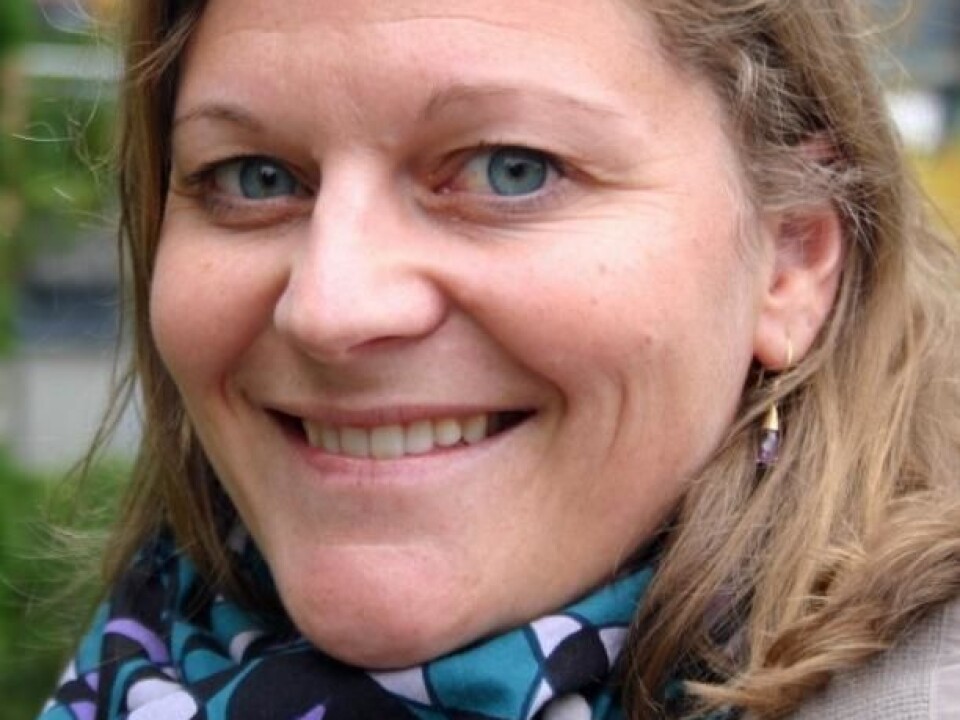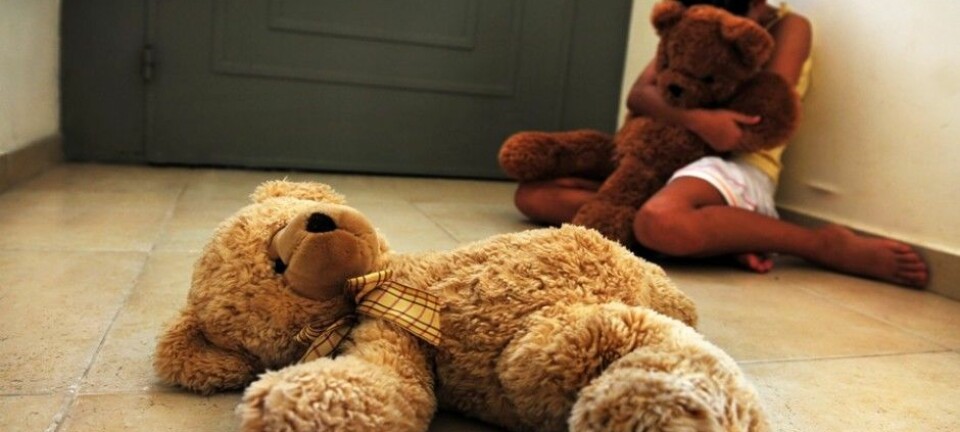An article from KILDEN Information and News About Gender Research in Norway

Minority girls are doing well, it's the boys who are struggling
Girls with immigrant background are cheered on by their friends, teachers, parents, and the general society, while their brothers drop out of school.
Denne artikkelen er over ti år gammel og kan inneholde utdatert informasjon.
“It’s become a bit like that; girls get an education and boys just hang out.”
Mirna and Fatima from Furuset in Oslo are studying for a BA degree at the University of Oslo.
Their explanation to why girls are doing so much better than the boys in their year is that the boys don’t plan their lives. They hang around the shopping centre, they hang out with the older guys, they fight when this is required to maintain their own, others’, or Furuset’s honour, and they often drop out of high school.
Or, as youth worker Amina summarised her old school mates who still meet in gangs in order to go and fight boys from other parts of the city:

“Those guys don’t have a life; they just hang out at the centre.”
Pipe down the boys, toughen up the girls
When Monika Rosten started to work as a youth worker at Furuset in Groruddalen in Oslo ten years ago, the district administration and the athletics association had a clear agenda.
“We were to take the boys down a notch and toughen up the girls,” says Rosten.
She recently defended her PhD in Social Anthropology in which Furuset’s youth, paid and voluntary youth work, and gender are among the topics.
“The district administration’s and the leisure activity sector’s understanding of the youth’s challenges was that they had to do with a lack of youth activities, but also that they faced challenges related to culture and religion. Their impression was that parents with backgrounds from countries such as Pakistan and Turkey gave their sons free reins, while the girls weren’t allowed to go out.”
Ten years and one PhD thesis later, Rosten claims that this approach enhanced what she refers to as caricatured gender patterns at Furuset. The boys here are troublemakers and the girls are achievers.
“The girls are encouraged and cheered on all the time, in attempts to rectify the perceived unbalanced gender pattern they experience at home. In contrast, the boys are supposed to be taken down a notch, and they often feel rejected.”
As a result, the girls go all the way to do master’s degrees, opening up opportunities to achieve middle class status and a safe income. The boys, on the other hand, are still hanging out at the Furuset centre.
“Everybody worries about the Muslim girls who must learn how to be girls in a different way. But look around you! The boys are the ones who are struggling.”
Girls are girls. Boys are immigrants.
Rosten’s research is based on fieldwork from 2011. She has been hanging out at the youth club, the athletics association, and the local shopping centre. She has accompanied youth workers at work and at work qualification measures. Additionally, she has conducted interviews with approximately thirty young adults between the age of 18 and 36 and with teachers and staff in the district administration.
Although gender was a central issue when Rosten worked as a youth worker at Furuset herself, she didn’t think it would be that significant in her own research. Nevertheless, it constantly came up and increasingly became a more and more important issue.
“One of my main findings is for instance that young people at Furuset have a very strong sense of geographical belonging,” says Rosten.
“But this sense of belonging is also gendered. It is strong for girls, but even stronger for boys.”
The researcher sees a connection between the need to belong and the young people’s minority status in Norway. This status is also partly gendered. There is room for girls to just be girls. The boys at Furuset are, however, immigrants.
“The girls are more subjected to social control at Furuset, but they don’t feel rejected by the general society. They gain freedom by taking higher education where they are introduced to new environments and other parts of the city,” says Rosten.
“The boys feel more free at Furuset. They don’t experience the same rejection there that they experience in other parts of the city, such as being stopped by the police, getting an ugly look from a teacher or being refused admission to a club. Their local community becomes their breathing space. They’re not allowed to be Norwegian, so instead they take possession of Furuset and make it their own.”
Clever boys have middle class parents
The story about bad boys and clever girls is exaggerated. There are troublesome girls and clever boys too.
Some of the boys who are school achievers change school to get away from their friends’ bad influence. Others make sure not to stand out. Doing well at school is not compatible with being a Furuset boy.
With the proviso that she hasn’t interviewed any of the parents, Rosten sees a clear class pattern in which boys are doing well at school and which boys drop out.
“The boys who do well at school often have parents with higher education and social status, or at least parents who try to follow up their school work closely. Unless the boys get this from home they don’t stand a chance.”
The class aspect does not, however, seem to have any effect on the girls.
“Those without parents with higher education get help from their friends and from school.”
Exaggerated gender roles
Girls and boys at Furuset contribute to maintaining the exaggerated gender roles.
“The minority – majority issue is constantly negotiated, who is allowed to be counted as Norwegian and not. Gender, however, is non-negotiable for them; it is something they regard as natural and given. This also applies to society in general, but it is particularly visible at Furuset,” says Rosten.
The youth here wholeheartedly embrace their roles as clever girls and bad boys.
“They contribute to maintaining an almost caricatured gender role pattern, and they describe it as natural. Girls take higher education, boys hang out, it’s just the way it is.”
“As a clever girl you’re always seen in contrast to the bad boy. The girls get more freedom when the boys are unambitious.”
According to Rosten, the clever girls and the troublesome boys are a result of an interplay between class, ethnicity, and gender. She believes that similar patterns can be observed in similar districts in Oslo.
Norway is the problem
According to Rosten, the immigrants’ native cultures cannot explain the problems that have occurred at Furuset over the past decades. Norwegian society is just as much to blame.
“Furuset is an ethnically mixed area, so you can’t just connect it to for instance rural Pakistani culture.”
According to Rosten, Furuset’s problems have a lot to do with the moralism that many immigrants encounter in Norwegian society.
“It’s a knee-jerk reaction among Norwegians to think that there is something wrong with the gender roles that these people bring with them from their home country, and that we have to do something about it. We must show them how things are supposed to be. I think this contributes to a strengthening of the things we don’t like.”
“There is huge variation in terms of what kind of ideals the parents have passed down to these youngsters. The social boundary they all experience, however, is the boundary between minority and majority. Whether you’re born in Norway or not, or whether your parents are born in Norway is irrelevant. It doesn’t matter how much traditional Norwegian food you eat. This is about the colour of your skin and people’s narrow perceptions of what it is to be Norwegian.”
Rosten explains that things are changing at Furuset, however. She thinks that if she were to conduct fieldwork today the results might already look different.
“Furuset offers a lot of activities for youth now compared to what they did ten years ago. The assumption that girls wouldn’t be allowed to participate have proven to be false, they flocked to the various activities once they were established. Boys and girls participate in voluntary activities, there are many sports activities for children, and a Furuset festival once a year. In this environment, there isn’t the same room for the macho dropout boy.”
Not equal opportunities for immigrant boys
“What kind of consequences do you think your research should have?”
“In Norway we have a large team of people working with children and youth. There is a need for increased awareness regarding gender, class, and ethnicity among them,” says Rosten.
“In my experience, both at school and in the leisure activity sector they think it’s sufficient to talk about the baggage these children have from home. They forget any awareness of the fact that the teacher represents middle class ideals. Being middle class becomes something Norwegian. Being clever becomes something Norwegian. Everyone working with children and youth needs to increase their awareness concerning these mechanisms and get past the issue of Norwegian versus non Norwegian.”
According to Rosten, it is due time that Norwegian society takes responsibility for the fact that what is going on in areas such as Furuset is something that occurs here, in Norway, as a result of and as a part of Norwegian society. It’s not sufficient to explain it away by saying that the immigrants bring with them a different culture as part of their baggage.
“Yes, many of the immigrants who come to Norway have perceptions of gender that are incompatible with Norwegian gender equality ideals. But if the goal is equal opportunities for everybody we need to face that the way we relate to this actually contributes to increased inequality.”
“The way boys with immigrant background are met in Norwegian society – in school, the media, the general society, by the police – decreases their chances of succeeding in higher education and the employment market.”
Rising above the social control
Nevertheless, it’s beyond doubt that the girls at Furuset experience an altogether different social control than the boys. Both parents and peers and report unsuitable behaviour. Whereas a boy might bring a baseball bat to the Furuset centre in order to go out and fight, and get away with it, a girl can’t even allow herself to hug a boy at the same shopping centre.
“One of your informants is worried about these clever girls who are top achievers at school and never complain about the social control or the pressure they experience from home. What did the girls say about this themselves?”
“They never talk about the clever girl syndrome themselves. Or about pressure or the consequences of pressure,” says Rosten.
The pressure to succeed in higher education is enormous. Rosten says that there are entire circles of friends in which everyone has decided that they’re going to get into medical studies. And normally they succeed too.
“They talk about the social control sometimes, but only as something they just have to handle. Many of them have a pragmatic attitude to the limitations they experience.”
“Are they bothered by the fact that they can’t hug a boy at the shopping centre?”
“They rather try to rise above it. A bit like ʻYes, that’s the way it is, our parents have other values but it’s OK, I can handle it.ʼ Not many complained about the strict rules they were under. Perhaps this is because they want to excuse their parents; they understand that their parents’ perspectives are very different from their own.”
“Many people are provoked by things that don’t necessarily provoke these girls. They react differently, they have grown up with conflicting gender ideals and have a fruitful dialogue with both teachers and parents,” says Rosten.
The Mosque provides order in life
Most of the youngsters in Rosten’s study are Muslims of various kinds.
For the girls who wear hijab it is important to emphasise that this is their personal, conscious choice. They wish to emphasise that their way of being Muslim is different from that of their parents. They have chosen Islam; it’s not something they just inherited from their family.
Religion, just like education, is at the same time something that provides leeway for the girls.
“The way they behave and dress as practicing Muslims gives freedom. By actively signalling that they’re devout Muslims, they consequently bury other people’s speculations concerning their own chastity. Sex before marriage is officially out of the question for a young Muslim woman.”
For the boys, Islam is often something that helps them out of the troubled teenage years and brings their lives back in order.
“After a few years where things have been out of control, some of the boys start visiting the Mosque more regularly. It’s a way of becoming an adult. And of sorting out incompatible gender roles, the gangster boy versus the responsible future family father.”
But when the boys finally pull themselves together, which most of them do according to Rosten, it is often too late to get their lives completely back on track.
“They might have already dropped out of school and have poor grades. That means a lot of doors will be closed to them.”
-------------------------------------
Read the Norwegian version of this article at forskning.no



































